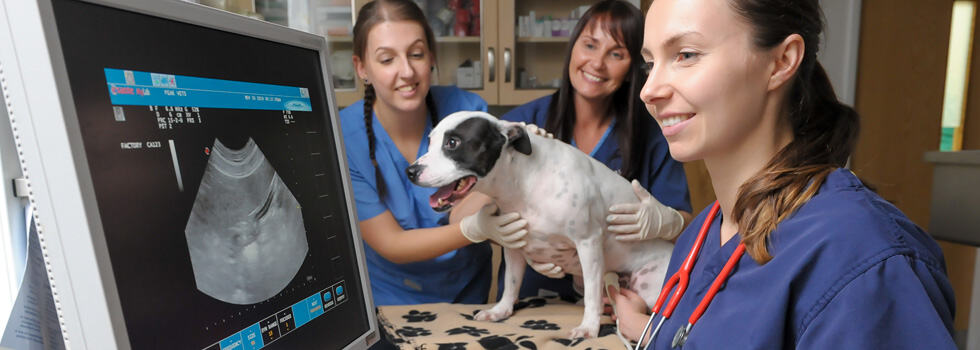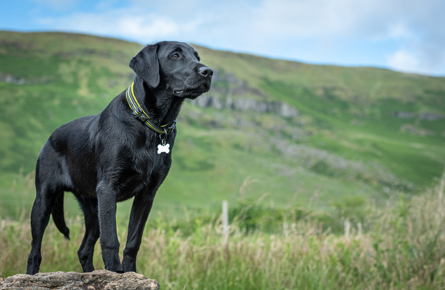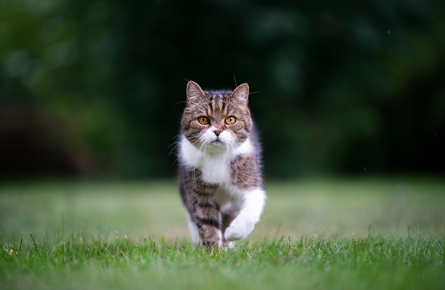Your pet will have a pet microchip placed beneath their skin to provide a permanent identification system. It is about the size of a rice grain and acts as a permanent form of identification.
Pet Microchipping
The majority of veterinarians, including Peak Veterinary Clinics, as well as local government offices and rescue organisations, have portable scanners that are capable of reading each pet's unique microchip number.
This ensures that your contact details will always be in the central microchipping database. Following the reading and verification of your pet's microchip, a quick phone call might let you and your pet reunite.
Book a pet microchipping appointment
the Importance of Pet Microchipping
The professionals at Peak Veterinary Clinic strongly advise pet microchipping for horses, dogs, cats, ferrets, rabbits, snakes, parrots, and tortoises.
Legal Requirement
All dogs must now be microchipped and all puppies vaccinated by the time they are eight weeks old in order for the breeder to lawfully transfer ownership. You might be fined up to £500.00 for not chipping your dog.
Keep in mind that if you want to travel with your pet, they must be microchipped and have a pet passport.
Anaesthesia is not required for the placement of a pet microchip because it is a minimally unpleasant process that may be completed in a normal consultation.
Don't worry if you can't remember or know whether your pet has a microchip; it's really simple to use a scanner to check for one. A member of the Peak Vets staff could be scheduled to scan your pet and look for a functional chip. Please ensure that before implanting a new microchip, we all make sure the animal hasn't received one.
Microchipping Your Dog
In a brief, almost painless process that doesn't include anaesthesia, microchipping entails inserting a small chip, about the size of a grain of rice, beneath the skin at the back of your dog's neck. Once implanted, your contact information and the chip's unique number are entered into a national database.
Microchipping dogs is mandated by law in the UK; pups must be vaccinated and microchipped by the time they are eight weeks old in order for ownership to be transferred. A fine of up to £500 might be imposed for noncompliance.
Furthermore, in order to get a Pet Passport for international travel, microchipping is required. In the UK, the majority of veterinarians, rescue organisations, and local governments have scanners that can read the chip, making it simple to identify and reconnect your dog with you in the event that they become lost or stray.
Microchipping Your Cat
Although microchipping cats is not legally necessary in the UK, Peak Vets highly advises it to secure their safe return in the event that they disappear. Similar to the procedure for dogs, a rice-grain-sized chip is placed beneath the skin at the scruff of the neck with no discomfort and no sedative required.
Every chip has a distinct identity that is connected to your contact data and your cat's information. The veterinarian will always scan to see whether there is already a chip before implanting. Since the chips are ISO-compliant, if a veterinarian or animal welfare centre finds your cat, they may scan the chip, retrieve your information from the national database, and get in touch with you to arrange a reunion—even if you live overseas.
Microchipping Your Rabbit
Since rabbits can sneak under fences and escape from hutches, microchipping them is strongly advised but not required. Peak Vets suggests microchipping a missing rabbit as soon as possible to increase the likelihood that it will be found.
Near the scruff of the neck, under the skin, lies a little chip about the size of a rice grain. Unlike an injection, which requires anaesthesia, this procedure is quick and simple. When you complete a registration form at the time of implantation, the clinic will put your information and your rabbit's information into a national database.
A veterinarian, animal shelter, or animal charity may be able to locate your rabbit by scanning its microchip and retrieving your contact details.
Equestrian Pet Microchipping
As of October 18, 2018, all horses, ponies, and donkeys must have a microchip and a current UK passport, according to new regulations from Defra. A central database known as the Central Equine Database (CED) will house this data.
Since June 30, 2009, microchipping has been required for horses born after that date. There is a grace period for senior horse owners:
- Horses must be microchipped for two years prior to October 1st, 2018.
- Following October 1st, 2020, all horses, ponies, and donkeys must be microchipped.
Reuniting stolen or lost horses with their owners and enhancing animal welfare are the goals of this innovative method. The CED will make it simple for police and municipal authorities to find owners, speeding up and improving the efficiency of the procedure. It can also assist in locating the owners of stray horses, guaranteeing appropriate treatment and holding them responsible.
Last but not least, the passport issuing agency must be notified of any changes in a horse's status, including death, loss, theft, or removal from the feeding chain. After then, they will have a day to add this new information to the CED.
Pet Microchipping for Horses
Our veterinarian will do a comprehensive examination prior to microchipping your horse to make sure the new chip we'll be implanting is working correctly and reading the correct number, as well as to make sure there are no existing chips.
The actual microchip will be positioned on your horse's left neck mid-crest. To make access simpler, we'll shave and clean a tiny region. For greater comfort during the surgery, local anaesthesia may be utilised in some situations. The chip will be scanned after being placed with a wide-bore needle to ensure that it is properly positioned inside your horse's body.
Although rare, a little amount of swelling (oedema) at the injection site is possible. Usually, this goes away on its own. In a similar vein, little bleeding may happen but usually ends shortly. Drainage and antibiotic therapy may be required if any problems develop, such as considerable fluid collection or prolonged oedema.
Registration Form for Pet Microchipping
Peak Vets provides microchipping for pets! The likelihood that your missing pet will return home is increased by this easy process. We enter your information (including lifetime enrolment) in a national database. For quicker reunions, keep your contact information current. Our microchips are compliant with international standards, which might help pet passport initiatives. For a happier, safer pet, get in touch with Peak Vets right now!
For more information about pet microchipping, please get in touch with one of our friendly staff members right now!










